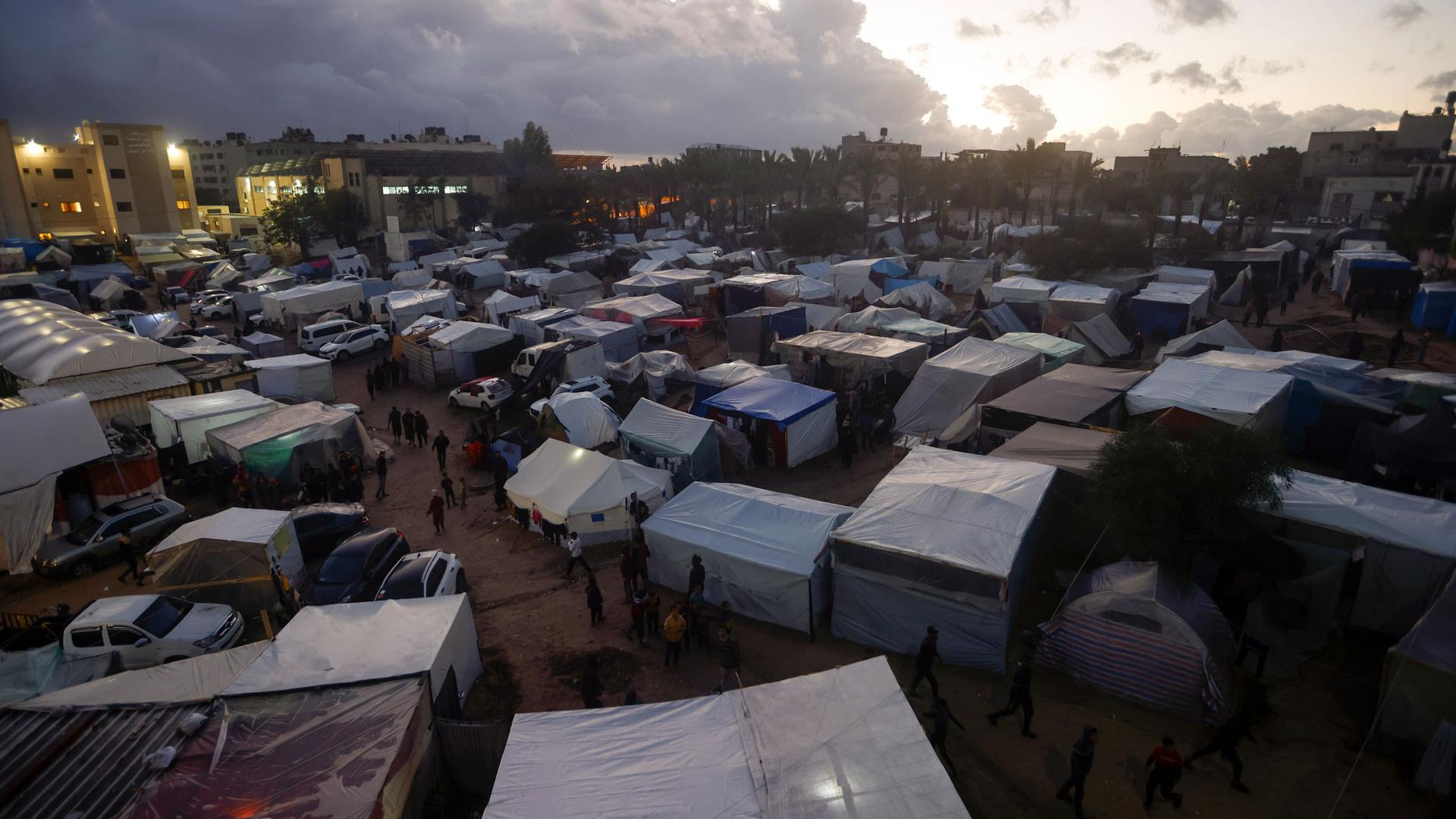LISTEN: Voices from across the globe as the Israel-Hamas war continues to unfold
The Israel-Hamas war began on Oct. 7 with deadly attacks by Hamas militants who targeted towns, farming communities and a music festival in southern Israel, near the Gaza border, killing about 1,200 people, according to Israeli officials.
During the attack, Hamas militants took 240 hostages, including women, children and the elderly, and Israeli citizens as well as foreign nationals.
Days later, Israel launched an offensive against Hamas in Gaza. As of Dec. 13, more than 18,600 Palestinians have been killed in Gaza, about two-thirds of them women and children, according to the Health Ministry in the Hamas-controlled territory. About 90% of Gaza’s 2.3 million people have been displaced within the besieged territory, where United Nations agencies say there is no safe place to flee.
Abdullah Hassanein, a professor from Gaza, was forced to relocate from the northern Gaza Strip to Rafah, in the south, last month.
“We are a civilian community,” he told The World. “We are farmers, laborers, teachers. We are not a militarized people. Why is the world letting this happen?”
A temporary ceasefire between Israel and Hamas, brokered by Qatar, took hold on Nov. 24, with Hamas releasing 24 of the Israeli hostages being held captive in Gaza, and Israel freeing 39 Palestinian prisoners from Israeli jails. The seven-day truce included provisions to supply Gaza with desperately needed food, water, medicine and fuel for the civilian population.
That week, Israel released a total of 240 Palestinian prisoners and detainees in exchange for 105 hostages freed by Hamas.
But Israel resumed its military offensive after a disagreement with Hamas over the hostage release terms. Israel said its goal is to totally dismantle Hamas and that its offensive against Hamas fighters in Gaza could stretch on for weeks despite growing international calls for a ceasefire.
The current Israel-Hamas war is the latest — and by far the most deadly and devastating — period of violence in the long-running Israeli-Palestinian conflict. (Check out our comprehensive timeline of key events in the conflict.)
As the Israel-Hamas war continues, we look back on a wide range of voices and reactions from across the globe, from political analysts to residents of Gaza, Israel and the West Bank.
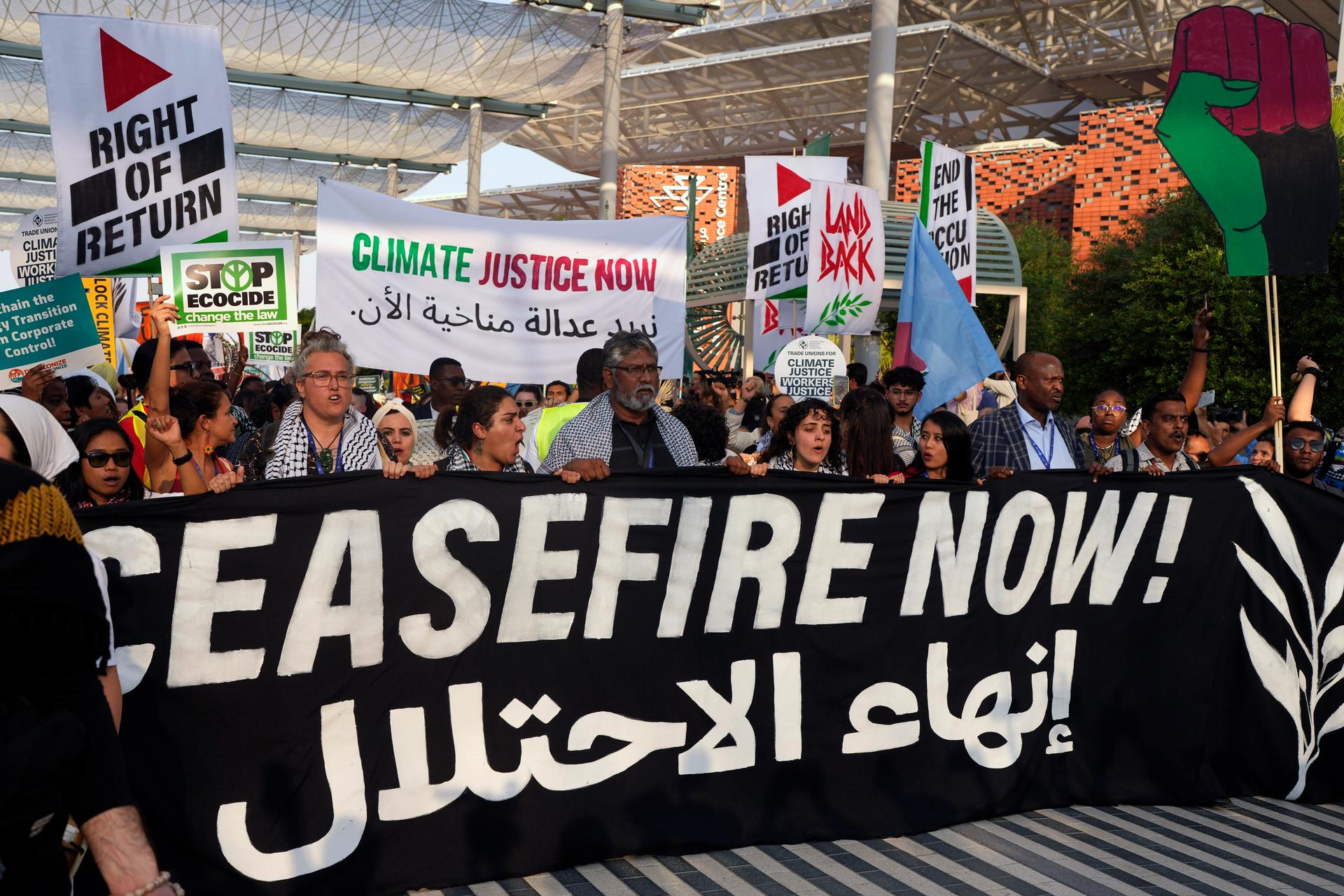
A ‘battle of all the Arab and Muslim nations’
The Palestinian militant group Hamas emerged in the late 1980s during the first Palestinian intifada — the uprising against Israel’s occupation of the Palestinian territories. Hamas’ founding ideological charter came out in 1988. (See our comprehensive timeline of events surrounding the ongoing conflict in the region going back as far as the late 1800s.)
In Arabic, Hamas is an acronym that stands for the Islamic Resistance Movement. Hamas does not recognize the legitimacy of the state of Israel and is sworn to the destruction of the Jewish state, aiming to bring Islamic rule to the whole region and the holy city of Jerusalem.
Hamas leader Ismail Haniyeh spoke on Al Jazeera’s English-language channel in October about the war, saying: “This is the battle of not only the Palestinians or the Gazans. It is the battle of all the Arab and Muslim nations.”
Doron Avital is an ex-Israeli military commander and a former member of Israel’s parliament.
He said Israeli leaders stressed that the ongoing conflict in the region was a national one, but “Hamas, of course, makes it a religious conflict. And there are people in Israel, of course, in the right wing, and they’re also pushed in this direction.”
Israeli leaders have discussed several options for how to combat Hamas — all of which pose significant consequences.
Matthew Bell with The World said Iran is a big question.
“It has long supported Hamas and Hezbollah in Lebanon. Iran has proxies in Syria as well … So, Israel’s military commanders are looking at a possible doomsday scenario of not just fighting Hamas, but a multifront war on its borders.”
The World’s Matthew Bell explains more about the origins of Hamas:
Allegations of war crimes on both sides
The war has already killed thousands of Palestinians and displaced more than 80% of Gaza’s 2.3 million residents who are running out of safe places to go.
Robert Goldman, a law professor at American University, said that international rules of war come into play here.
These laws emerged from the 1949 Geneva Convention, which aimed to prevent the atrocities of World War II from recurring. But he said the “modern law of war is not concerned with the causes of the armed conflict. That is, who’s the aggressor, who’s the victim. It just says that once armed conflict is underway, these are the rules.”
The International Criminal Court, or an ad hoc court or countries that are parties to the Geneva Convention, enforce the rules, Goldman said.
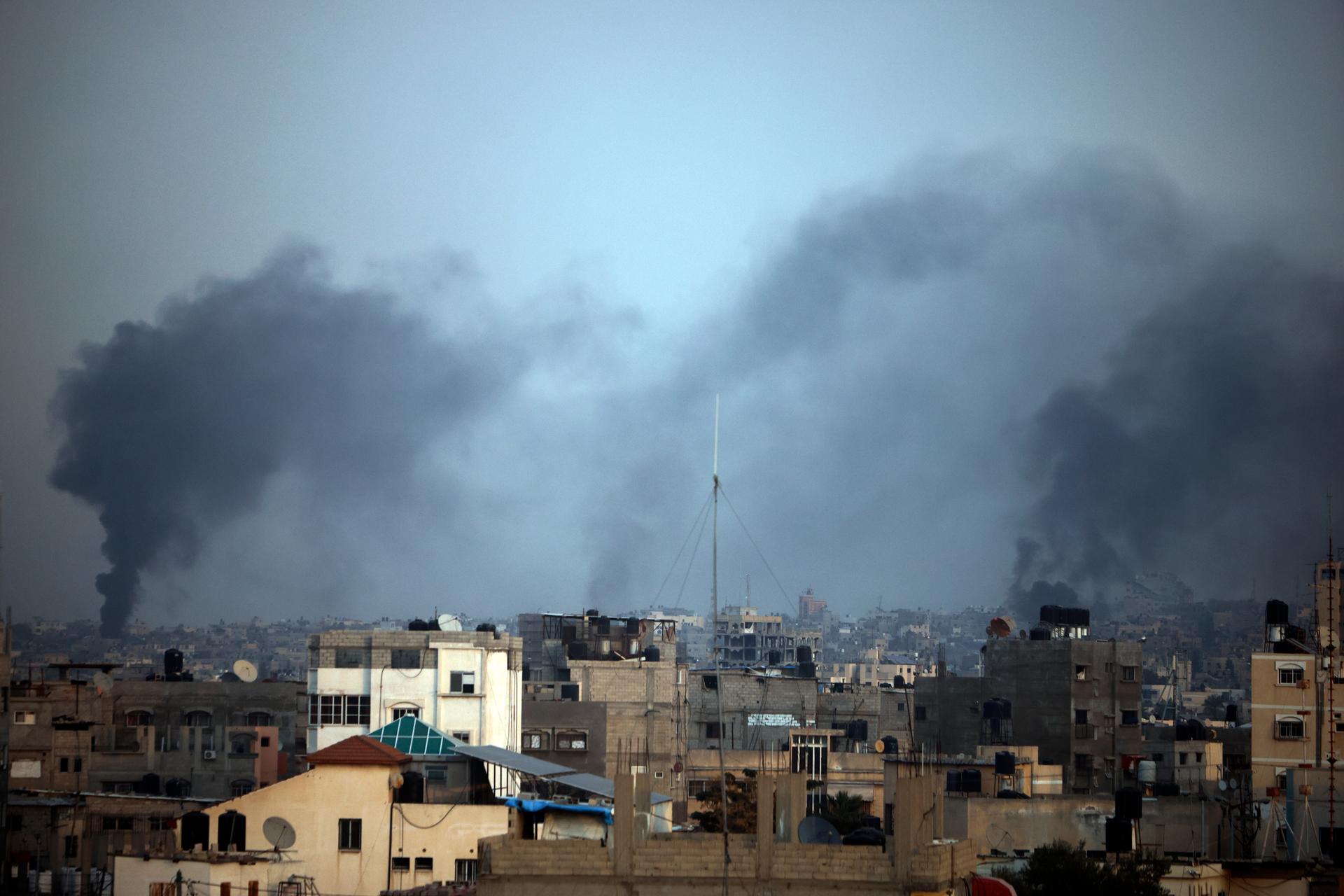
There are many allegations of war crimes in the conflict already. The UN says both sides have probably committed war crimes.
Goldman said that Hamas’ transgressions have been well-documented, including in past conflicts, by groups like Human Rights Watch and Amnesty International.
They allege that Hamas “has consistently used its civilian population in order to shield Israeli military operations. In other words, they deliberately are placing their own population in harm’s way.”
Investigating Israel for war crimes here, he said, means examining the overall campaign — whether its military is being reckless and causing excessive casualties.
Goldman provides more insights on the rules of warfare as they apply to this conflict:
Mixed responses from the EU
As the conflict intensifies, governments continue to weigh in.
In the EU, leaders are trying to present a unified front, but responses have been mixed.
In France, pro-Palestinian rallies are now banned. The ban comes amid a sharp increase in antisemitism across Europe.
Myriam Ackermann-Sommer is France’s first female Orthodox rabbi.
“Generally, I’m not in favor of bans, but I would say with the particular timeline of Hamas having done what it has done, then, I completely understand why you would prohibit a protest in favor of Palestine in the days that followed,” Ackermann-Sommer said.
EU Commission President Ursula von der Leyen visited Israel in October and held a press conference alongside the Israeli prime minister.
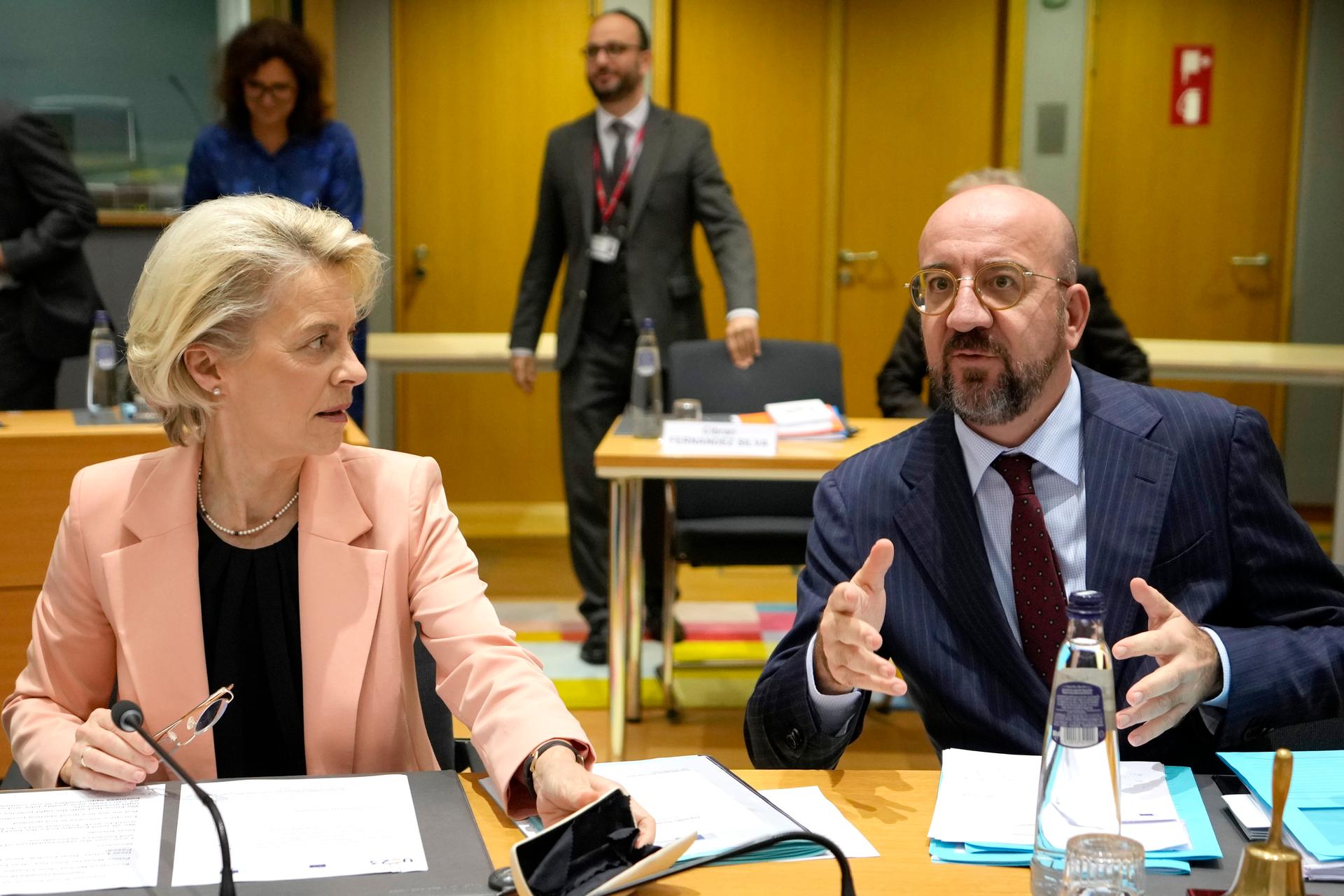
“In the face of this unspeakable tragedy, there’s only one possible response: Europe stands with Israel and Israel has the right to defend itself. In fact, it has the duty to defend its people,” she said.
Von der Leyen has met with some backlash, however, with EU Foreign Policy Chief Josep Borrell saying that her comments did not speak for the entire EU.
Hear more from EU leaders about their responses to the Israel-Hamas war:
Latin American leaders condemn Israeli attacks
In Latin America, Bolivia, Chile and Colombia have all condemned the Israeli military’s campaign in Gaza. Bolivia went further.
“Bolivia decided to break diplomatic relations with the state of Israel in repudiation and condemnation of the aggressive and disproportionate Israeli military offensive taking place in the Gaza Strip,” Freddy Mamani, Bolivia’s deputy foreign minister, said at a news conference.
The Chilean and Colombian governments recalled their ambassadors in Tel Aviv, and Brazilian officials have criticized the continued airstrikes on Gaza.
Israel responded by accusing these leaders of aligning with terrorism.
Michael Paarlberg, a Latin American studies professor at Virginia Commonwealth University, said that while some of these responses are surprising, some are not.
Chile is home to the world’s largest Palestinian diaspora outside of the Middle East. Nearly 500,000 Palestinians live there.
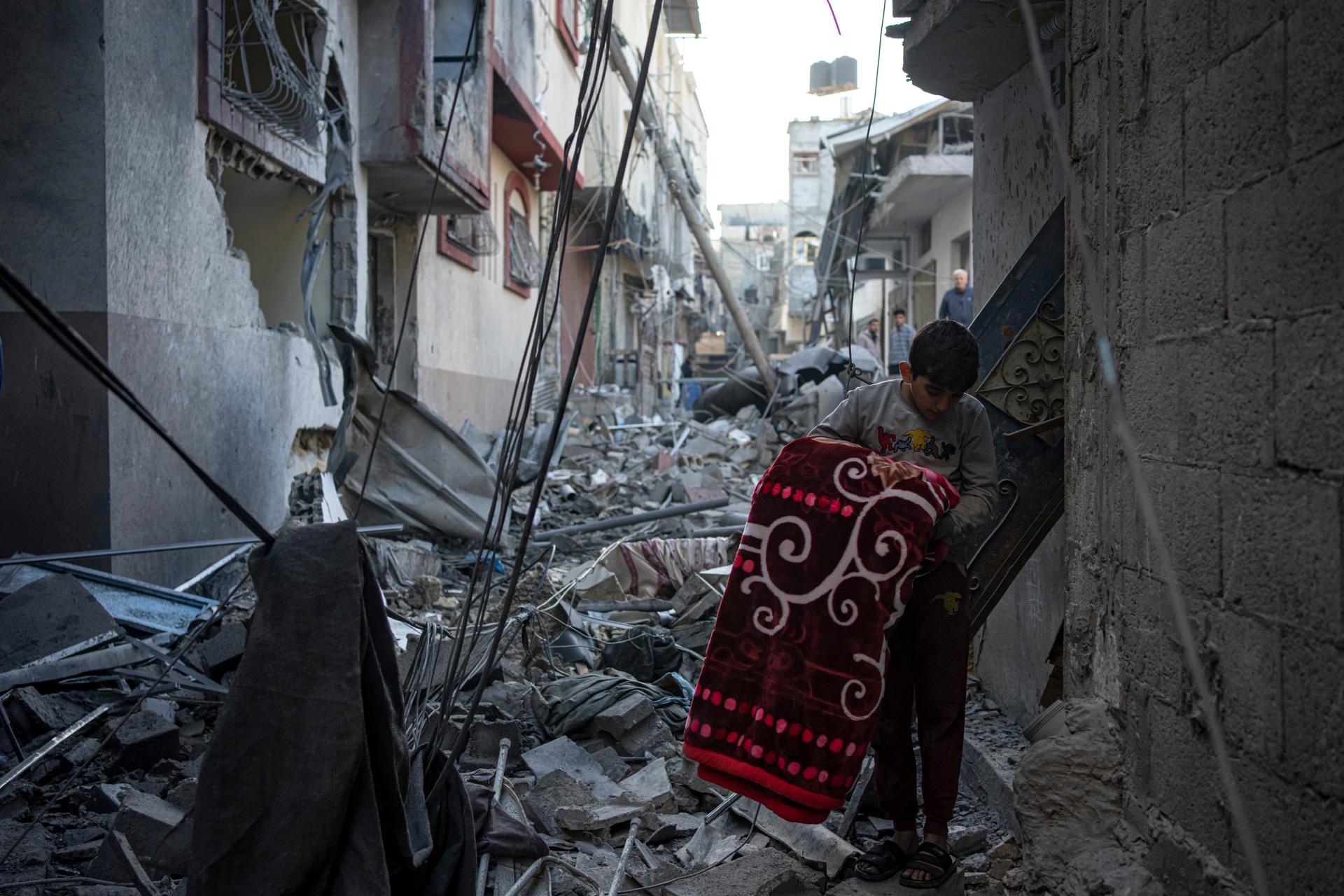
Paarlberg said that this alignment is due to Chilean leaders’ left-wing political ideologies and to cultural factors — conservative Chilean presidents have also paid visits to Palestinian territories in the past.
“There is strong support for the Palestinian cause that is bipartisan and even extends to cultural areas such as sports, with Chile’s famous soccer team, Club Deportivo Palestino,” Paarlberg said.
The World’s Tibisay Zea reports on the different motivations behind the stances taken by Latin American countries:
Blaming the US
Some experts say that Russia is using the conflict between Israel and Hamas as an opportunity to blame the United States and strengthen the Kremlin’s ties with Arab states.
Russian Foreign Minister Sergei Lavrov met with the Arab League and condemned the violence in Gaza, but he also pointed the finger at United States foreign policy — for “monopolizing” the mediation process.
Nikolay Kozhanov, an associate professor at the Gulf Studies Center at Qatar University, said that “historically, Russia tends to speak up in support of the Palestinian camp in order to shore up relations with Arab states. But it’s a balancing act where Russia also tries to keep up steady relations with Israel.”
Ukraine, on the other hand, has expressed full support for Israel, saying that Israel has every right to defend itself against acts of terror.
Hear more about Ukraine’s and Russia’s starkly different approaches to the war in Israel:
American public ’embrace’ of Israel
In October, US Secretary of State Antony Blinken traveled to various Arab nations to seek support for the Israeli offensive in Gaza.
Egypt shares the Rafah border crossing with the Gaza Strip — a pathway necessary for allowing aid into the Palestinian enclave. Earlier in October, Egypt refused to open the Rafah border.
Blinken spoke to Israeli officials to try to remedy the situation.
“We need access for aid. We are in deep discussions with the Israelis, with the Egyptians and with others, hugely helped by Secretary Blinken in his travels around the region,” UN Humanitarian Aid Chief Martin Griffiths said.
As of Nov. 1, the Rafah border crossing has been open to allow a limited number of foreign passport holders and injured Palestinians to pass through, as well as for some aid to reach Gaza.
Nathan Brown, a political science professor at George Washington University, said that Blinken’s diplomacy work is a balancing act between ensuring aid for Gaza and supporting Israel’s military position.
“The American public embrace of Israel is pretty remarkable,” Brown said. “And not simply that it’s an embrace coming from Biden and the emotional way that he spoke, but essentially, sending his secretary of state to the region really almost implicates the United States in every single thing that Israel does.”
Brown hypothesized that Blinken and the Biden administration are embracing Israel so closely to gain leverage and influence Israeli decision-making. However, he added, their true motives are unclear.
Brown continues:
Following Hamas’ money
The US has also been involved in efforts to impose sanctions on Hamas.
Hamas is a political movement with a huge military capacity as well as a major Islamic charity, and is worth billions of dollars.
US Deputy Treasury Secretary Wally Adeyemo works to curb many of Hamas’ illicit tactics, which include laundering money through illegitimate charities.
“It’s been critically important that the EU and the UK have joined the United States in freezing Hamas’ assets and going after these illegitimate charities that they’ve set up,” Adeyemo said, adding that they’ve been working closely with Middle Eastern countries that are concerned about terrorist financing.
Adeyemo talks more about how Hamas moves money and what the United States is doing to cut it off:
The Associated Press contributed to this report.
The story you just read is accessible and free to all because thousands of listeners and readers contribute to our nonprofit newsroom. We go deep to bring you the human-centered international reporting that you know you can trust. To do this work and to do it well, we rely on the support of our listeners. If you appreciated our coverage this year, if there was a story that made you pause or a song that moved you, would you consider making a gift to sustain our work through 2024 and beyond?
